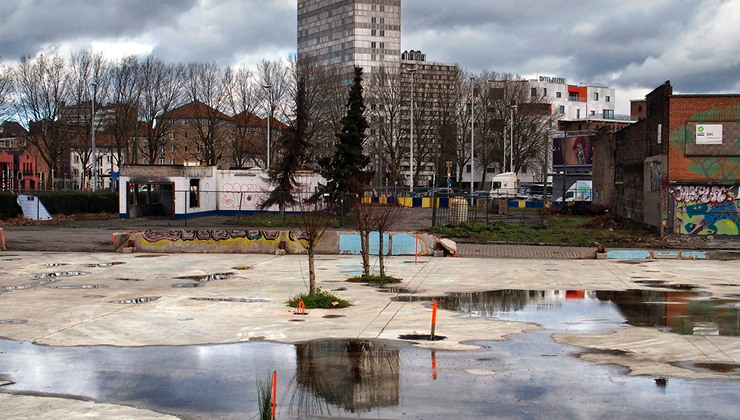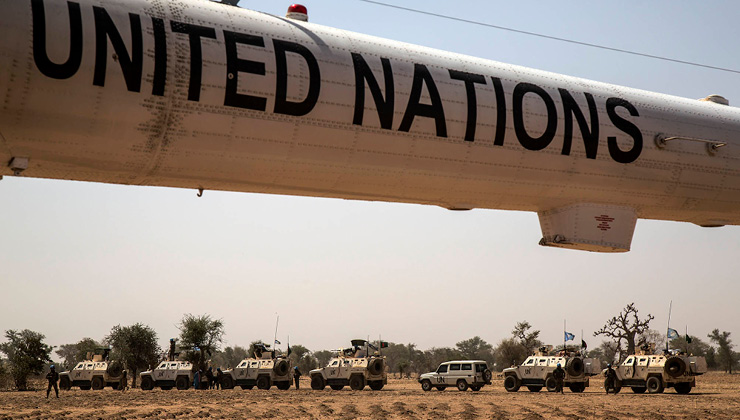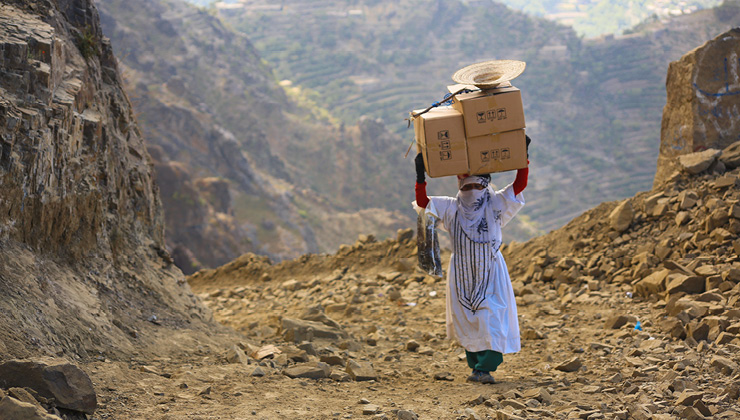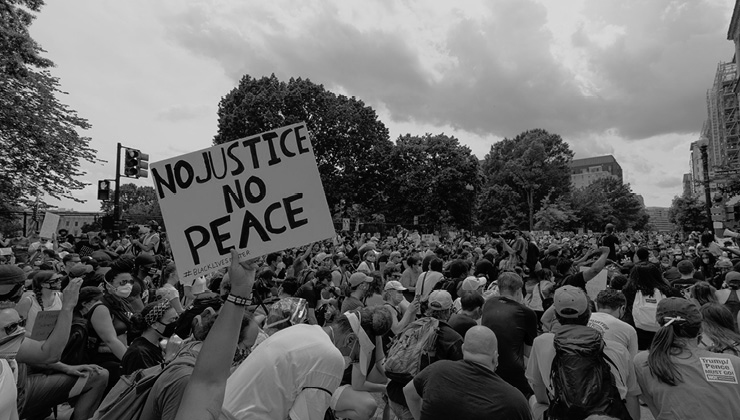Women have suffered deeply during Afghanistan’s 40 years of war. Violence against women remains one of the most serious human rights issues in Afghanistan. Shivani Sharma explores the challenges that Afghan women face in the context of the ongoing intra-Afghan negotiations and the possible implications on achieving lasting peace in Afghanistan.
With the signing of the US-Taliban peace deal, Afghanistan embarked on a new chapter to put an end to its longstanding war with a desire to achieve lasting and sustainable peace. To realise its goal and guarantee a smooth transition to a peaceful society, the government in Afghanistan must work for a just, gender-equal, and inclusive society to bring Afghanistan closer to its goal of achieving durable peace in the country.
However, the composition of the Afghan government’s negotiating team for the intra-Afghan talks raised considerable questions around the inclusivity of the peace table and overall, on the status of women in Afghanistan. The delegation which was meant to be representative of the society it serves kept women’s participation in the peace process remarkably low. Out of the 21-member team negotiating with the Taliban at the intra-Afghan talks, only five female members of the Afghan government have a place on the table. Moreover, the absence of representation of women from civil society as well as from local levels also risks some of the critical issues of these women being left unaddressed or under-represented in the peace dialogue.
By only accounting for a proportion of the State’s population, the continued lack of recognition of women’s rights and their exclusion from the institutional structures of decision making are quite likely to impede Afghanistan’s path to realising peace. Any agreement reached without the active participation of women is a disregard of their basic human right to decide on their future, and the future of the state in which they reside as equal citizens.
The representation of women in the peace dialogue is vital as women are not only affected by war and violence but also act as a ‘catalyst’ of peace and change. Having suffered the most from war and militarisation, women stand up against war and adopt non-violent approaches rooted in cooperation, dialogue and trust. They also act as critical allies in implementing and ensuring the sustainability of the peace agreements by creating public awareness, working across different strata of society, and by helping various groups reconcile. According to UN data, women’s inclusion in the peace process increases the chances of agreements lasting at least 15 years by 35 per cent.
A new joint report by Oxfam, Cordiad, and Inclusive Peace in September 2020 concluded that nearly 80 per cent of Afghanistan’s past peace meetings since 2005 had left women totally out of the peace process. Despite several legislative, and institutional safeguards, and the adoption of the National Action Plan (NAP) under the UN 1325 resolution, Afghanistan has failed to provide relief and recovery services to women from/within conflict-affected communities and address the many challenges that Afghan women face.
Any agreement reached without the active participation of women is a disregard of their basic human right to decide on their future, and the future of the state in which they reside as equal citizens.
The State’s commitment under the NAP to hold space for women by prioritising their participation in the peace process, and in the drafting of strategies and policies on peace and security also remains largely unfulfilled. While women have fought hard for their rights and freedom over the years, many of their concerns and challenges remain unaddressed.
Erosion of women’s rights: Impact of armed conflict on Afghan women
Historically women in Afghanistan enjoyed an empowered status having access to equal rights in many areas of life. The right to education, the right to vote and to run for political offices were a few rights enjoyed by women. However, with time as the country encountered coups, military conflict, and then the Taliban rule, many of the rights enjoyed by women were rolled back.
Under the Taliban regime, women in Afghanistan were not only excluded from the public sphere but subjected to a suppressive regime against women’s rights. Having created an environment of pervasive fear, the Taliban imposed compulsory and heavy veiling for women, opposed education and employment for girls and women, and restricted their mobility as women were only allowed to go outside of the houses when accompanied by male relatives or risk severe punishment.
Despite this, many Afghan women remained resilient and continued to fight by secretly running home-based schools to impart modern education to girls. Habiba Sarabi, one of the five women peace negotiators in the intra-Afghan negotiations was one of them.
However, with the end of the Taliban regime in 2001 and the signing of the Bonn Agreement women received national and international support for a gender-sensitive government in Afghanistan. With the establishment of the Afghanistan Independent Human Rights Commission and the Ministry of Women Affairs at the Bonn Conference and the implementation of a new constitution in Afghanistan in 2004, several legislative, and institutional advances were made towards the restoration of women rights. Constitutional guarantees such as those mentioned in Articles 22, 83, and 84 of the Afghan Constitution, legal legislation such as the Law on Elimination of Violence Against Women (2009), and international assistance contributed significantly to improving the status of women in Afghanistan.
Many women’s organisations representing civil society also worked hard towards the restoration of women’s rights in the areas of education, health and civic education. Much of the lobbying for women’s rights came from non-profit NGOs led by Afghan women and the Afghan women’s network that worked extensively at the grassroots level working towards bringing a community-level change.
Despite advances made by women in managing conflict and the assurances and guarantees of the national government, challenges for women continue to exist. For example: many of the commitments from the country’s NAP remain to be implemented. Challenges such as the lack of cooperation between ministries, the absence of funding and the aggravated insecurity situation in the country have hampered the implementation of the plan.
The two-decade war on terrorism and the deteriorating security situation in Afghanistan with the rise in suicide attacks has also acted as one of the major deterrents for Afghan women to step out to receive education and thereby diminished their employment opportunities resulting in high rates of illiteracy and unemployment. Moreover, internally displaced women and women living in conflict-affected communities were, and remain, particularly more vulnerable to gender-based violence, and women who are vocal about their rights risk becoming victims of assassination attacks.
The recent attacks and death of a 24-year-old girl Fatima Khalil, a strong advocate for women’s rights and a donor liaison officer at Afghanistan Human Rights Commission, in June 2020, and the assassination attempt by unknown gun-men on Fawzia Koofi, one of the woman negotiators in the peace talks, clearly projects how women participating in public roles continue to be of a prime target. Whilst this continues peace and stable governance seems unachievable.
The proposal of the now ongoing intra-Afghan negotiations too received a mix bag of reactions from the Afghan women. While most of the Afghan women are encouraging of the peace talks, many worry about the return of the Taliban and the prospective loss of their hard-won freedom.
Women in Afghanistan have also shown their disappointment with the US administration over their failure to ensure or safeguard women rights during their negotiations with the Taliban. The US which once vowed to liberate Afghan women from the draconian repression of the Taliban, made no efforts in safeguarding women rights during their talks with the Taliban, calling it an internal matter to be resolved through the intra-Afghan negotiations.
The question of women’s rights and status remains a topic of hard bargain between the Afghan leadership and the Taliban as the two hold different views on the matter. The Taliban deliberately projected an ambiguous position on women’s issues by stating that women be allowed to work and be educated but only within the boundaries of Islamic law and Afghan culture. Such a perspective reduces the matter to a set of various interpretations around religious norms.
However, despite the present impasse in the ongoing intra-Afghan negotiations, the hope is that the intra-Afghan negotiations be more than just a power-sharing arrangement between the male power-brokers and that women’s issues or their rights are not traded off or side-lined. Sustainable peace is achievable only when inclusivity is achieved. Women’s representation in the peace process shouldn’t be tokenistic and must hold an equal right to drive the narrative and establish a peace framework.
The views, thoughts and opinions expressed in this blog post are those of the author(s) only, and do not necessarily reflect LSE’s or those of the LSE Centre for Women, Peace and Security.
Image credit: Sohaib Ghyasi on Unsplash





